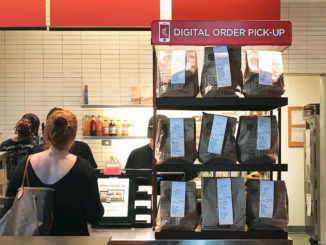
By RTN Staff - 6.30.2020
The agricultural industry has been weathering a crisis for years that has recently been magnified and accelerated due to the COVID-19 pandemic. Farmers around the country have had to destroy millions of pounds of fresh goods due to decreased demand with restaurants, hotels and schools closed.
In trying to its part to respond to the situation, Chipotle Mexican Grill, with over 2,600 restaurants as of March 31, 2020, in the United States, Canada, the United Kingdom, France and Germany, has launched an eCommerce platform, dubbed Chipotle Virtual Farmers’ Market. The stated goal is to enable farmers in the Chipotle supply chain to launch improved versions of their own eCommerce websites.
Through individualized online marketplaces, Chipotle seeks to empower suppliers to sell farm products directly to consumers across the country. The company is assisting in the development of each supplier’s site, which is built on Shopify, covering hosting fees on Shopify for two years and supporting the design and development of the direct-to-consumer storefronts.
The Chipotle Virtual Farmers’ Market aims to give Chipotle’s suppliers a new stream of revenue and enhance their commitment to sustainable farming practices amid unforeseen circumstances.
“It can be intimidating for many family farms to change the way they do business, so we’re giving our suppliers the right tools and resources to successfully launch improved eCommerce platforms,” said Chris Brandt, Chief Marketing Officer. “Our Food with Integrity values start with our farmers and helping them adapt to new technologies and ways of reaching the consumer is crucial for both the future of the farming industry and Chipotle.”
Chipotle, which is the only restaurant company of its size that owns and operates all its restaurants has a long track record as a digital innovator. The company pioneered mobile ordering in 2008 and rapidly grown its digital ordering capabilities in recent years to include AI-enabled phone ordering, drive-thru pickup lanes and an Amazon’s Alexa-based reordering function.
Prior to the global health crisis , digital sales accounted for almost 20 percent of the company’s revenue. Digital orders totaled almost $1 billion last year.
The company also installed in-store digital features toward the end of last year to help reduce friction and increase convenience for customers and delivery drivers alike. Walk-up windows and premium placement for digital built in pick-up portals to allow customers to receive their food more efficiently.
“By better suiting our restaurants to accommodate the digital business, we’re able to finalize orders more effectively and provide a better overall experience for our guests,” said Curt Garner, Chief Technology Officer, in a company statement.
Over the past month, Chipotle and Shopify have worked together to lead virtual onboarding sessions with the partner farmers to help them get acquainted with the new eCommerce platform. If the platform proves successful, other big restaurant chains may decide to follow suit.




